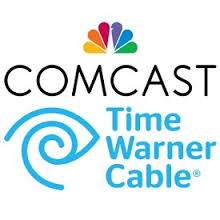Independent Networks Offer Mixed Opinions about Comcast-Time Warner Cable Merger
The smarter way to stay on top of the multichannel video marketplace. Sign up below.
You are now subscribed
Your newsletter sign-up was successful

Some independent networks say their quest for cable system distribution will become much harder in the wake of the proposed Comcast-Time Warner Cable merger announced last week.
Independent network executives say that without the backing of major media conglomerates like Viacom and The Walt Disney Co., it will be more difficult to gain subscribers and increase licensing fees from Comcast and other large distributors. Comcast is expected to increase its subscriber base to an industry-high 30 million video customers after divesting 3 million of the 11 million subscribers it would acquire upon finalization of the Time Warner Cable transaction.
The deal has even fueled speculation that programmers like Discovery, Scripps Networks and AMC Networks could look to merge with other programming entities to gain more leverage in license fee negotiations with a Comcast-Time Warner Cable conglomerate. Just last month Discovery and Scripps pursued a potential merger, before calling off talks.
Such deals could further hamper independent networks as they look to survive in an increasing consolidated cable environment.
“I really don’t see this as a positive,” said Veria Living CEO Eric Sherman. “Consolidation has not been beneficial to us in general and I really can’t imagine consolidation being a good thing for us and giving us more opportunities.”
While Sherman said the health and lifestyles-themed network – which would not reveal specific subscriber figures -- is open to discussing a “mutually beneficial deal” with Comcast, he added the network will look to explore its options with the FCC and other branches of the government to “make sure that our voice is heard.”
Glenn Beck-owned news and public affairs network The Blaze is also concerned that the potential merger could further limit distribution opportunities for small, independent networks.
The smarter way to stay on top of the multichannel video marketplace. Sign up below.
“Major MVPDs do not have a good history of supporting independent programmers whose content is in demand like The Blaze, and we are skeptical that giving Comcast even more market power will benefit consumers, promote competition or lead to more diversity of voices or consumer choice on their channel line ups," said Chris Balfe, CEO of The Blaze. The network has carriage deals with cable operators Cablevision and Buckeye Cable, as well as satellite distributor Dish Network and overbuilder RCN, but would not reveal specific subscriber numbers.
But not all independent networks were down on the deal. AXS TV chairman Mark Cuban said the combined Comcast-TWC entity could be a “huge positive” for consumers and small to mid-size content providers, adding that Comcast has mostly been supporters of independently distributed services.
“Comcast has shown themselves to be a strong supporter of independent networks, and this merger can be an opportunity to extend this commitment further,” Cuban said.
Fine arts-based network Ovation, which last month was re-launched on Time Warner systems after the MSO dropped the service in early 2013, said the deal will benefit independently owned networks that can provide value to distributors.
“Independent networks that bring an incremental value and differing content to distributors will get supported and will continue to get supported,” said Brad Samuels, executive vice president of content distribution for the arts-based network. “The bigger problem with independent networks is the market power that the bigger programming groups and broadcasters have when it comes to [retransmission deals], and how they have taken up so much of the [network programming] fees and bandwidth capabilities.”
R. Thomas Umstead serves as senior content producer, programming for Multichannel News, Broadcasting + Cable and Next TV. During his more than 30-year career as a print and online journalist, Umstead has written articles on a variety of subjects ranging from TV technology, marketing and sports production to content distribution and development. He has provided expert commentary on television issues and trends for such TV, print, radio and streaming outlets as Fox News, CNBC, the Today show, USA Today, The New York Times and National Public Radio. Umstead has also filmed, produced and edited more than 100 original video interviews, profiles and news reports featuring key cable television executives as well as entertainers and celebrity personalities.

